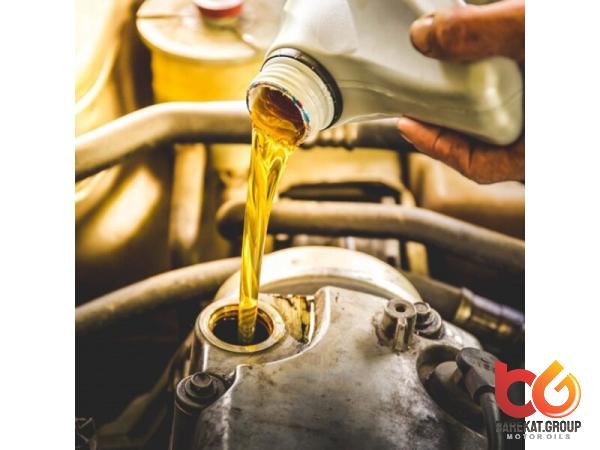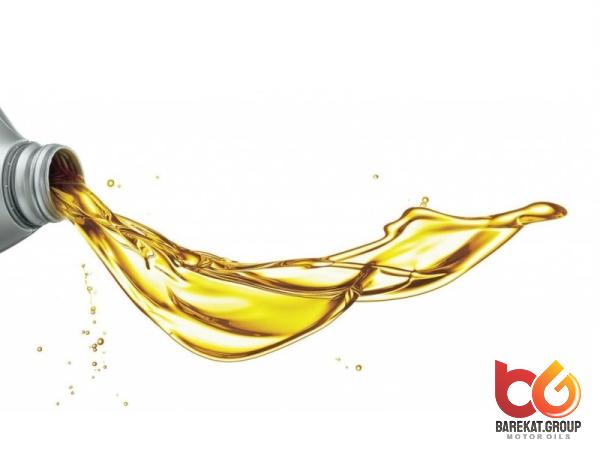An Overview of Engine Oil Derivatives: Types, Uses, and Industry Outlook Introduction: Engine oil is an essential lubricant used in various automotive and industrial applications. It plays a crucial role in reducing friction, protecting engine components, and improving overall performance and efficiency. Over time, advancements in technology have led to the development of a wide range of engine oil derivatives that cater to specific requirements and industry needs. This article provides a comprehensive overview of engine oil derivatives, exploring their types, uses, and the current industry outlook. Types of Engine Oil Derivatives: 1. Base Oil: Base oil is the primary component of engine oil, accounting for about 70-95% of the total composition. It is derived from crude oil through a refining process and is typically categorized into five main groups: Group I, Group II, Group III, Group IV (synthetic), and Group V (specialty). Each group differs in terms of viscosity, performance characteristics, and cost. 2. Additives: Additives are chemical compounds that are blended with base oils to enhance the performance and functionality of engine oil. They act as modifiers, improving viscosity, reducing oxidation, controlling acidity, and preventing wear and tear. Additives include detergents, dispersants, antioxidants, viscosity index improvers, anti-wear agents, and friction modifiers, among others. 3. Synthetic Oils: Synthetic oils are derived from chemically modified base oils or polyalphaolefins (PAOs) and offer superior performance compared to conventional mineral-based oils. They provide improved lubrication in extreme temperature conditions, better resistance to oxidation and thermal breakdown, and extended drain intervals. Synthetic oils are primarily used in high-performance engines, racing cars, and heavy-duty applications. 4. Semi-Synthetic Oils: Semi-synthetic oils, also known as synthetic blends, are a combination of mineral-based oils and synthetic oils. They provide a balance between cost and performance and are commonly used in passenger cars and light-duty vehicles. Semi-synthetic oils offer better protection and enhanced fuel efficiency compared to conventional oils.
Engine oil
 5. High-Mileage Oils: High-mileage oils are formulated specifically for vehicles with high mileage or older engines. These oils contain additional additives that help reduce oil consumption, prevent oil leaks, and reduce wear on aging engine components. High-mileage oils often contain seal conditioners, anti-wear additives, and detergents to clean and rejuvenate the engine. Uses of Engine Oil Derivatives: 1. Automotive Industry: Engine oil derivatives are primarily used in the automotive industry for various applications, including passenger vehicles, commercial vehicles, motorcycles, and off-road vehicles. The type of engine oil used depends on factors such as engine design, performance requirements, and operating conditions. 2. Industrial Machinery: Engine oil derivatives are widely utilized in industrial machinery and equipment such as generators, compressors, pumps, and manufacturing machinery. These oils ensure smooth operation, reduce wear and tear, and increase the durability and efficiency of the equipment. 3. Marine Applications: In the marine sector, engine oil derivatives are used in marine engines, outboard motors, and other marine equipment. Marine engine oils are specifically designed to withstand the harsh conditions of saltwater environments and provide optimal lubrication and protection. 4. Aviation Industry: Specialized engine oils are used in aircraft engines, where extreme temperatures, high operating speeds, and long-duration flights require lubricants with superior performance and stability. These oils undergo rigorous testing and conform to aviation industry standards. 5. Power Generation: Engine oil derivatives play a crucial role in power generation by lubricating large generators and turbines. These oils provide protection against wear, reduce friction, and ensure the efficient operation of power generation equipment. Industry Outlook: The engine oil derivatives industry has witnessed significant growth in recent years, driven by factors such as a growing automotive industry, increasing demand for efficient lubricants, and the rise in industrial activities. The market is highly competitive and fragmented, with numerous players offering a wide range of products and solutions. The adoption of stricter emission standards and the constant pursuit of improved fuel efficiency have led to an increased demand for advanced engine oil derivatives. The development of synthetic and semi-synthetic oils, along with the incorporation of advanced additives, continues to drive innovation in the industry. However, the industry is not without challenges.
5. High-Mileage Oils: High-mileage oils are formulated specifically for vehicles with high mileage or older engines. These oils contain additional additives that help reduce oil consumption, prevent oil leaks, and reduce wear on aging engine components. High-mileage oils often contain seal conditioners, anti-wear additives, and detergents to clean and rejuvenate the engine. Uses of Engine Oil Derivatives: 1. Automotive Industry: Engine oil derivatives are primarily used in the automotive industry for various applications, including passenger vehicles, commercial vehicles, motorcycles, and off-road vehicles. The type of engine oil used depends on factors such as engine design, performance requirements, and operating conditions. 2. Industrial Machinery: Engine oil derivatives are widely utilized in industrial machinery and equipment such as generators, compressors, pumps, and manufacturing machinery. These oils ensure smooth operation, reduce wear and tear, and increase the durability and efficiency of the equipment. 3. Marine Applications: In the marine sector, engine oil derivatives are used in marine engines, outboard motors, and other marine equipment. Marine engine oils are specifically designed to withstand the harsh conditions of saltwater environments and provide optimal lubrication and protection. 4. Aviation Industry: Specialized engine oils are used in aircraft engines, where extreme temperatures, high operating speeds, and long-duration flights require lubricants with superior performance and stability. These oils undergo rigorous testing and conform to aviation industry standards. 5. Power Generation: Engine oil derivatives play a crucial role in power generation by lubricating large generators and turbines. These oils provide protection against wear, reduce friction, and ensure the efficient operation of power generation equipment. Industry Outlook: The engine oil derivatives industry has witnessed significant growth in recent years, driven by factors such as a growing automotive industry, increasing demand for efficient lubricants, and the rise in industrial activities. The market is highly competitive and fragmented, with numerous players offering a wide range of products and solutions. The adoption of stricter emission standards and the constant pursuit of improved fuel efficiency have led to an increased demand for advanced engine oil derivatives. The development of synthetic and semi-synthetic oils, along with the incorporation of advanced additives, continues to drive innovation in the industry. However, the industry is not without challenges.
Specifications of Engine oil
 Environmental concerns and the increasing focus on sustainability have prompted the development of bio-based engine oil derivatives. Additionally, the emergence of electric and hybrid vehicles poses a long-term threat to the traditional engine oil market, as these vehicles require minimal lubrication. Conclusion: Engine oil derivatives play a vital role in ensuring the efficient and reliable operation of engines and machinery across various industries. From base oils to additives, synthetic blends to high-mileage oils, the diverse range of derivatives caters to the specific needs and requirements of different applications. As technology continues to advance, the engine oil derivatives industry will strive to develop more efficient, sustainable, and environmentally friendly solutions. Innovation in base oils, additives, and bio-based alternatives will shape the future of the industry, allowing for improved lubrication, reduced emissions, and enhanced performance across multiple sectors.Engine Oil Derivatives: Types, Uses, and Industry Outlook 1. The Importance of Engine Oil Derivatives in the Automotive Industry: The automotive industry is a major user of engine oil derivatives, relying on their lubricating properties to ensure optimal engine performance and longevity. Engine oil reduces friction between moving parts, reducing wear and tear, preventing heat build-up, and removing contaminants from the engine. With the increasing number of vehicles on the road globally, the demand for engine oil derivatives continues to grow. 2. Industrial Applications of Engine Oil Derivatives: In the industrial sector, engine oil derivatives are vital for the smooth operation of various machinery and equipment. Generators, compressors, pumps, and manufacturing equipment rely on engine oil to lubricate moving parts, reduce friction, and prevent premature failure. These derivatives also offer protection against rust and corrosion, ensuring the longevity and efficiency of industrial machinery. 3. The Role of Engine Oil Derivatives in Marine Applications: Marine engines, outboard motors, and other marine equipment require specially formulated engine oil derivatives to withstand the harsh operating conditions of saltwater environments. These derivatives provide excellent lubrication and corrosion resistance, ensuring the durability and efficiency of marine equipment. 4. Engine Oil Derivatives in the Aviation Industry: The aviation industry relies on specialized engine oils designed for aircraft engines. These oils must withstand extreme temperatures, high operating speeds, and long-duration flights. Engine oil derivatives used in aviation undergo rigorous testing and adhere to strict industry standards to ensure optimal lubrication, heat transfer, and protection against wear.
Environmental concerns and the increasing focus on sustainability have prompted the development of bio-based engine oil derivatives. Additionally, the emergence of electric and hybrid vehicles poses a long-term threat to the traditional engine oil market, as these vehicles require minimal lubrication. Conclusion: Engine oil derivatives play a vital role in ensuring the efficient and reliable operation of engines and machinery across various industries. From base oils to additives, synthetic blends to high-mileage oils, the diverse range of derivatives caters to the specific needs and requirements of different applications. As technology continues to advance, the engine oil derivatives industry will strive to develop more efficient, sustainable, and environmentally friendly solutions. Innovation in base oils, additives, and bio-based alternatives will shape the future of the industry, allowing for improved lubrication, reduced emissions, and enhanced performance across multiple sectors.Engine Oil Derivatives: Types, Uses, and Industry Outlook 1. The Importance of Engine Oil Derivatives in the Automotive Industry: The automotive industry is a major user of engine oil derivatives, relying on their lubricating properties to ensure optimal engine performance and longevity. Engine oil reduces friction between moving parts, reducing wear and tear, preventing heat build-up, and removing contaminants from the engine. With the increasing number of vehicles on the road globally, the demand for engine oil derivatives continues to grow. 2. Industrial Applications of Engine Oil Derivatives: In the industrial sector, engine oil derivatives are vital for the smooth operation of various machinery and equipment. Generators, compressors, pumps, and manufacturing equipment rely on engine oil to lubricate moving parts, reduce friction, and prevent premature failure. These derivatives also offer protection against rust and corrosion, ensuring the longevity and efficiency of industrial machinery. 3. The Role of Engine Oil Derivatives in Marine Applications: Marine engines, outboard motors, and other marine equipment require specially formulated engine oil derivatives to withstand the harsh operating conditions of saltwater environments. These derivatives provide excellent lubrication and corrosion resistance, ensuring the durability and efficiency of marine equipment. 4. Engine Oil Derivatives in the Aviation Industry: The aviation industry relies on specialized engine oils designed for aircraft engines. These oils must withstand extreme temperatures, high operating speeds, and long-duration flights. Engine oil derivatives used in aviation undergo rigorous testing and adhere to strict industry standards to ensure optimal lubrication, heat transfer, and protection against wear.
Buy Engine oil
 5. Power Generation and Engine Oil Derivatives: Engine oil derivatives play a critical role in power generation, where large generators and turbines require efficient lubrication to operate smoothly. These derivatives provide essential protection against wear, reduce friction, and ensure the reliable and efficient operation of power generation equipment. 6. Emerging Trends in Engine Oil Derivatives: The engine oil derivatives industry is continuously evolving to meet the changing demands of the market. One major trend is the development of bio-based engine oils. These derivatives are derived from renewable sources and offer a more sustainable alternative to traditional petroleum-based oils. Bio-based engine oil derivatives provide similar levels of lubrication, protection, and performance while reducing the carbon footprint. 7. Advancements in Additives for Engine Oil Derivatives: Additives are crucial components in engine oil derivatives, and ongoing research and development efforts focus on improving their performance and functionality. The introduction of nano-additives has shown promising results in enhancing lubrication, reducing friction, improving fuel economy, and extending engine life. 8. The Impact of Stricter Emission Standards on Engine Oil Derivatives: Stricter emission standards worldwide drive the development of advanced engine oil derivatives. These stricter regulations require engine oils with low viscosities to minimize internal friction and maximize fuel efficiency. Engine oil derivatives with lower levels of sulphated ash, phosphorus, and sulfur (SAPS) are becoming increasingly important to comply with emission regulations and protect advanced exhaust after-treatment systems. 9. Engine Oil Derivatives and the Electric Vehicle Transition: The rise of electric vehicles (EVs) poses both challenges and opportunities for the engine oil derivatives industry. EVs require minimal lubrication due to their simpler drivetrain and fewer moving parts. However, as hybrid electric vehicles (HEVs) and plug-in hybrid electric vehicles (PHEVs) continue to gain popularity, there is a need for engine oil derivatives that cater to the unique requirements of these vehicles, such as lubricating internal combustion engines and regenerative braking systems.
5. Power Generation and Engine Oil Derivatives: Engine oil derivatives play a critical role in power generation, where large generators and turbines require efficient lubrication to operate smoothly. These derivatives provide essential protection against wear, reduce friction, and ensure the reliable and efficient operation of power generation equipment. 6. Emerging Trends in Engine Oil Derivatives: The engine oil derivatives industry is continuously evolving to meet the changing demands of the market. One major trend is the development of bio-based engine oils. These derivatives are derived from renewable sources and offer a more sustainable alternative to traditional petroleum-based oils. Bio-based engine oil derivatives provide similar levels of lubrication, protection, and performance while reducing the carbon footprint. 7. Advancements in Additives for Engine Oil Derivatives: Additives are crucial components in engine oil derivatives, and ongoing research and development efforts focus on improving their performance and functionality. The introduction of nano-additives has shown promising results in enhancing lubrication, reducing friction, improving fuel economy, and extending engine life. 8. The Impact of Stricter Emission Standards on Engine Oil Derivatives: Stricter emission standards worldwide drive the development of advanced engine oil derivatives. These stricter regulations require engine oils with low viscosities to minimize internal friction and maximize fuel efficiency. Engine oil derivatives with lower levels of sulphated ash, phosphorus, and sulfur (SAPS) are becoming increasingly important to comply with emission regulations and protect advanced exhaust after-treatment systems. 9. Engine Oil Derivatives and the Electric Vehicle Transition: The rise of electric vehicles (EVs) poses both challenges and opportunities for the engine oil derivatives industry. EVs require minimal lubrication due to their simpler drivetrain and fewer moving parts. However, as hybrid electric vehicles (HEVs) and plug-in hybrid electric vehicles (PHEVs) continue to gain popularity, there is a need for engine oil derivatives that cater to the unique requirements of these vehicles, such as lubricating internal combustion engines and regenerative braking systems.
Engine oil + buy and sell
 10. Technological Advancements Shaping the Future of Engine Oil Derivatives: Technological advancements such as artificial intelligence (AI), machine learning, and data analytics are playing a significant role in the development of engine oil derivatives. These technologies enable manufacturers to optimize formulations, improve performance, and predict maintenance needs based on real-time data from engines and equipment. 11. The Global Engine Oil Derivatives Market: The engine oil derivatives market is highly competitive and fragmented, with numerous global and regional players vying for market share. Major companies invest heavily in research and development to introduce innovative products and stay ahead of the competition. The market is segmented based on base oil type, additive type, application, and geography. 12. Future Prospects and Opportunities in the Engine Oil Derivatives Industry: Despite challenges such as stricter regulations and the rise of electric vehicles, the engine oil derivatives industry presents numerous opportunities for growth. The expanding automotive and industrial sectors, along with the demand for advanced lubricants, provide a robust market for engine oil derivatives. Continued innovation, research, and sustainability efforts will drive the industry forward, enabling the development of environmentally friendly and high-performance engine oil derivatives to meet the evolving needs of various industries. Conclusion: Engine oil derivatives are crucial for a wide range of industries, including automotive, industrial, marine, aviation, and power generation. These derivatives ensure optimal lubrication, heat dissipation, and protection, enhancing the efficiency and longevity of engines and equipment. The industry continues to evolve, incorporating advancements in technology and focusing on sustainability to meet changing market demands. With the right balance of research, innovation, and environmental responsibility, the engine oil derivatives industry is well-positioned for continued growth and success.
10. Technological Advancements Shaping the Future of Engine Oil Derivatives: Technological advancements such as artificial intelligence (AI), machine learning, and data analytics are playing a significant role in the development of engine oil derivatives. These technologies enable manufacturers to optimize formulations, improve performance, and predict maintenance needs based on real-time data from engines and equipment. 11. The Global Engine Oil Derivatives Market: The engine oil derivatives market is highly competitive and fragmented, with numerous global and regional players vying for market share. Major companies invest heavily in research and development to introduce innovative products and stay ahead of the competition. The market is segmented based on base oil type, additive type, application, and geography. 12. Future Prospects and Opportunities in the Engine Oil Derivatives Industry: Despite challenges such as stricter regulations and the rise of electric vehicles, the engine oil derivatives industry presents numerous opportunities for growth. The expanding automotive and industrial sectors, along with the demand for advanced lubricants, provide a robust market for engine oil derivatives. Continued innovation, research, and sustainability efforts will drive the industry forward, enabling the development of environmentally friendly and high-performance engine oil derivatives to meet the evolving needs of various industries. Conclusion: Engine oil derivatives are crucial for a wide range of industries, including automotive, industrial, marine, aviation, and power generation. These derivatives ensure optimal lubrication, heat dissipation, and protection, enhancing the efficiency and longevity of engines and equipment. The industry continues to evolve, incorporating advancements in technology and focusing on sustainability to meet changing market demands. With the right balance of research, innovation, and environmental responsibility, the engine oil derivatives industry is well-positioned for continued growth and success.
Your comment submitted.